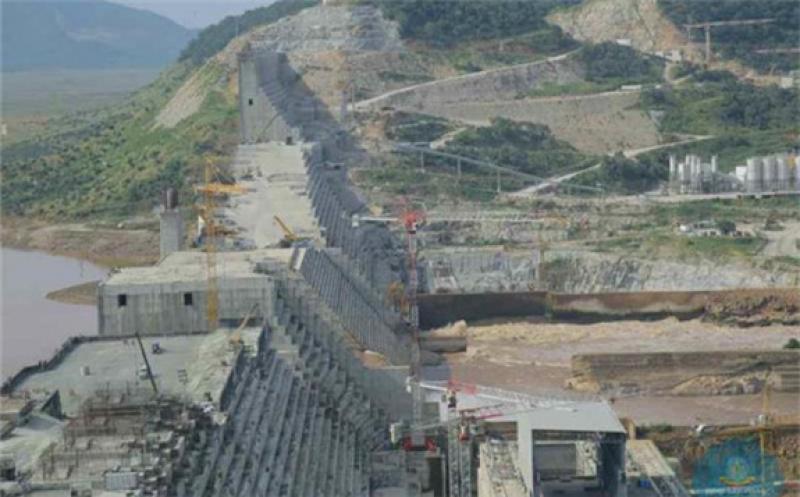Controversy continues to shadow the development of the Grand Inga III project, with the latest arising from a report titled ‘I Need You, I Don’t Need You: South Africa and Inga III’, which probes South Africa’s commitment to the project.

The joint report, issued by the Congo Research Group and consulting firm Phuzumoya Consulting, looks into South Africa’s foreign and economic policy, and linkages to the hydropower project.
According to the report, buying electricity from Inga III is risky and may be more expensive than most other sources available to South Africa.
South Africa’s updated Integrated Resource Plan (IRP), envisages that the country’s energy mix would include: coal to contribute 59 per cent, nuclear 5 per cent; hydro 8 per cent; photovoltaic 6 per cent; wind 18 per cent; gas and storage 2 per cent – through to 2030.
The report highlights that the IRP2019 represents a significant shift away from coal, which currently produces around three-quarters of Eskom’s power.
Some estimates suggest that the cost of renewable energy will equal the cost of non-renewable energy by 2030, providing additional impetus for this transition away from coal and the need for hydropower from Inga.
The report cited the IRP stating that buying power from Inga figured among its “applied policy adjustments and considerations.” The government conceded that this move, along with other “adjustments and considerations” – which were not explained – would result in about 5 per cent higher tariffs by 2030 compared to the least-cost scenario.
However, according to the IRP, this higher cost could be justified through the benefit of having consistent and predictable electricity, as well as by the regional economic benefits of Inga hydropower, from which South Africa would also stand to gain, says the report.
The report further points out that during a joint seating among Members of Parliament, a question from the main opposition party, the Democratic Alliance (DA), demanded to know why there was a deviation from the least-cost scenario to accommodate Inga, asking “how will South Africa benefit?”
Former energy minister Jeff Radebe in his response said: “Inga is a very good project for us, for SADC and for Africa. It is part of Agenda 2063. At the African Development Bank, it is one of the top priorities of the new boss there. It is of benefit to all Africans that it is implemented as soon as possible.”
Agenda 2063 is the African Union’s (AU) strategic framework for economic development over the next 50 years.
The AU has identified 12 flagship projects or initiatives which it deems “very urgent and relevant and whose immediate implementation will provide quick wins.” Grand Inga is listed among these projects.
Despite Radebe’s defense of Inga III, critics have underlined that Inga would cost 2-3c/kWh [more than the lowest cost scenario, which would mean an additional R175m ($12m) cost to the economy per year].
South Africa ‘is not in need of more energy’
According to the report, Eskom’s head of grid planning, Mbulelo Kibido has stated that there would need to be an entirely new transmission line first from Inga to the Congo border, and then from the Congo border to South Africa.
Kibido said: “You can’t use the existing lines. They won’t handle it. And a new line costs R7m [$0.48m] per kilometer. And that does not include the substations. Each substation would need two transformers and they are R400m [$27.42m] each. We simply do not have that kind of money.”
He also argued that South Africa is not in need of more energy, as it is supposed to be adding 11 GW from Medupi and Kusile coal plants, which would, he claimed, be finished “by 2020,” despite the continued technical problems plaguing both plants.
“We will want to sell power, not buy it. Inga makes no business sense for us. And there is no budget for it,” said Kibido.
With that said, the IRP retains the government’s commitment to purchase power from Inga, which it justifies with reference to the 2013 Treaty, and South Africa’s commitment to advancing regional industrialisation.
The IRP alleges in this regard that Inga’s “regional development drivers are compelling, especially given that currently there is very little energy trade” within SADC.
The report also quotes the IRP: “There is a need to finalise the technical solution for the evacuation of this power from the Grand Inga across the transit countries, viz. Congo, Zambia, Zimbabwe/ Botswana into South Africa. The necessary agreements must be concluded as soon as possible if the hydro option from Grand Inga is to materialise.”
Grand Inga III could take Africa out of the dark
Earlier this year, DRC’s Minister of Finance Sele Yalaghuli, led a delegation to hold talks with the AfDB.
“We come to reaffirm our partnership with the African Development Bank and its leadership in the effective and rapid implementation of the Inga III project,” said Yalaghuli.
The discussions focused on the Inga site, the optimal development of which will allow the DRC to establish a roadmap for the development of the Inga project, with a capacity of 4,800 MW.
AfDB’s interim Vice-President, energy sector Wale Shonibare stressed the need to optimise the development of the potential of the Inga site for the benefit of the DRC, the region and all African continent.
He also reaffirmed the Bank’s commitment to maintain its leadership and unfailing support for the realization of “this integrative project”.
Shonibare said: “Inga is an opportunity for our continent, which can no longer continue to live in the dark. Now is the time to take action. Thanks for trusting us!”
The Director of the AfDB’s regional integration department, Moono Mupotola, sees the Grand Inga project as a panacea for Africa to advance the production capacities of the DRC and other African countries.
“The Grand Inga project will certainly strengthen regional energy integration, in order to develop large competitive energy markets on the continent, especially in this context of the African Continental Free Trade Area,” said Mupotola.